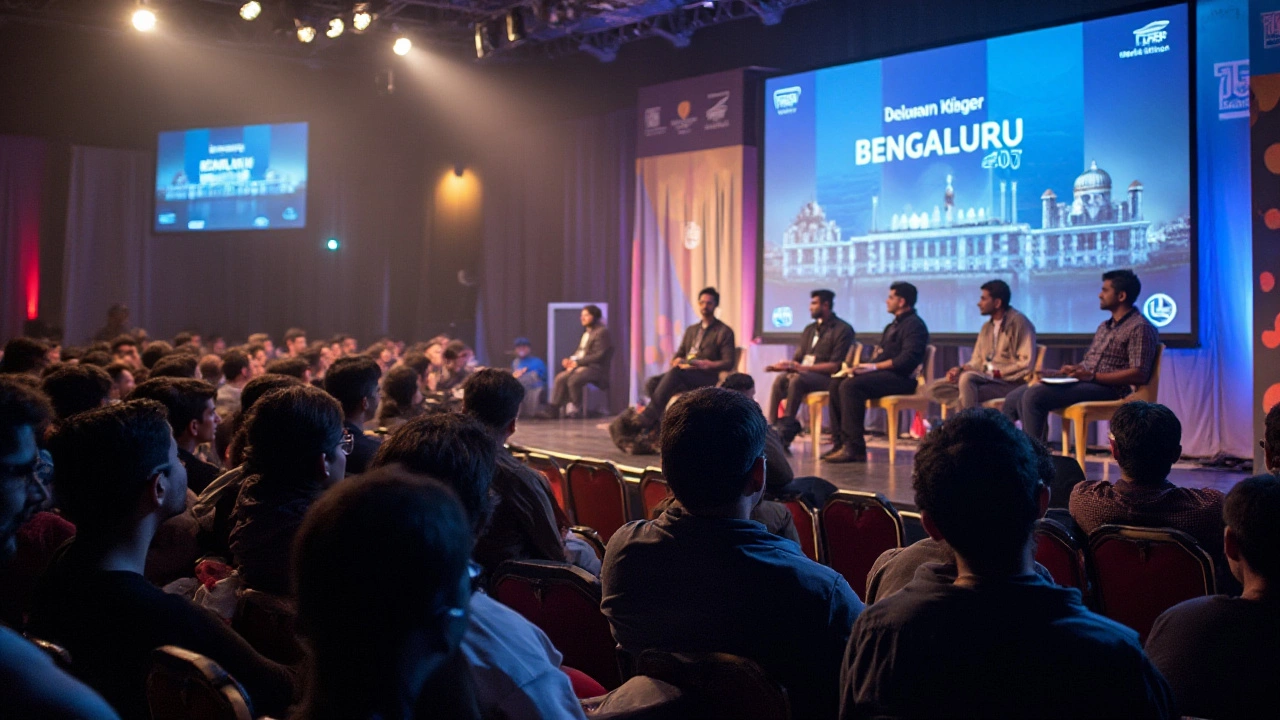Coding has become an essential skill in today’s technology-driven world, sparking curiosity about the level of mathematical prowess needed to excel in this field. Many aspiring coders wonder if their shaky foundation in math could hinder their journey toward becoming successful programmers.
While it's true that math plays a significant role in certain areas of coding, the reality is that not all coding adventures require an advanced degree in mathematics. Much of programming revolves around thinking logically and solving problems methodically, skills that can be honed even without high-level math.
Let's explore where exactly math fits into the coding landscape, and reveal that with practice and a bit of creativity, coding is a pursuit accessible to many, regardless of their mathematical inclinations.
- Understanding Coding Basics
- The Role of Math in Coding
- When Math Becomes Important
- Enhancing Your Coding Skills Without Heavy Math
Understanding Coding Basics
Delving into the world of coding can seem daunting at first, with its own unique language and a myriad of concepts to grasp. However, at its core, coding is about instructing a computer to perform specific tasks through carefully crafted commands and instructions. This fundamental nature extends to all programming languages, whether you're dealing with the simplicity of Python or the structured syntax of C++. To put it plainly, coding can be thought of as a way to communicate with machines, and like any language, it starts with understanding its grammar and vocabulary. Knowing coding basics is a stepping stone, and contrary to what many believe, becoming proficient in coding doesn't always call for intimate knowledge of complex math.
Problem-solving is a pivotal part of coding, more so than memorizing equations or formulae. In fact, many seasoned programmers rely on their ability to break down large problems into manageable parts, solving each piece efficiently. They utilize coding basics, which involve understanding loops, conditionals, and data structures, to create solutions. Oftentimes, it is the logical reasoning and analytical thinking that make a coder effective, rather than swift mathematical calculations. An interesting fact to consider is that the history of coding is intertwined with problem-solving. Early programming pioneers such as Grace Hopper and Ada Lovelace made strides not because of their math prowess alone, but because of their innovative thinking and creativity in handling data.
"The art of programming is the art of organizing complexity, of mastering multitude and avoiding its bastard chaos as effectively as possible," - Edsger W. Dijkstra.
Certainly, understanding numbers and having a grasp of arithmetic can be beneficial in areas like programming skills or dealing with algorithms, especially in fields like game development or data science. But for most, the beginning steps involve writing simple scripts that automate repetitive tasks or perform basic functions. These coding basics allow newcomers to build confidence before tackling assignments that might require deeper mathematical insights. The significance lies in developing a systematic approach to thinking, shared alike between coders and mathematicians, rather than diving right into the complex aspects.
Of course, each individual’s journey in the realm of coding differs. While some might find comfort in utilizing Python's vast libraries to create solutions, others may enjoy the rigid structure Lua offers for game scripting. A decision-driven framework paired with logical methodologies all stem from understanding coding at its most basic level. Thus, those aspiring to venture into coding can rest assured that foundational knowledge coupled with consistent practice can efficiently build their programming prowess, without undue stress over mathematical skills.

The Role of Math in Coding
When people think of coding, they often imagine rows of complex equations and algorithms that require a deep understanding of math. While math is undoubtedly part of the world of coding, its role is often more nuanced than one might initially expect. In many ways, coding is like a language where the syntax is influenced by logic and problem-solving rather than pure arithmetic or calculus.
For those entering the field, it's important to distinguish between different programming skills and where math truly fits in. For instance, areas such as web development or front-end design typically do not require a strong mathematical foundation. What is more crucial is the ability to structure logic and flow, much like solving a puzzle. It's in conceptualizing solutions and implementing them efficiently that programmers often find themselves relying on a sense of logic more than numerical prowess.
However, the role of math becomes more pronounced in specialized sectors like data science, machine learning, and game development. In machine learning, understanding linear algebra and statistics can make a significant difference in creating effective algorithms. Similarly, in game development, physics calculations and matrix transformations are necessary to simulate movement and render graphics accurately. Not surprisingly, many institutions teach the mathematical concepts underpinning these areas together with coding to ensure that students build a comprehensive skill set.
"In some niches like cryptography, math is the backbone. To code encrypted communications, a coder must understand prime numbers and other mathematical theories," explains Alice Barkley, a renowned software engineer and educator.
What really makes coding accessible is that once you understand these principles, you can often leverage libraries and pre-built functions that handle much of the mathematical heavy lifting. Languages like Python have extensive libraries that abstract the math behind data analysis, enabling coders to focus on the logic and creativity at the heart of most programming tasks.
For those worrying about their math skills, the key is to assess what type of coding you are aspiring to pursue. Often, brushing up on specific concepts related to your domain is more practical than deep-diving into mathematical theories that may not apply to your coding journey. Luckily, there is an abundance of resources, from online courses to community forums, that can help bridge any gaps you might encounter.
Understanding when and how math plays its role in coding can not only shape your learning path but also empower you to decide which areas of coding truly resonate with you. With time and practice, even math-averse individuals can develop a strong command of coding by honing their logical and problem-solving abilities.

When Math Becomes Important
There comes a point in the world of programming skills where math steps in not just as a supportive character but occasionally as the star of the show. This isn't to say that every line of code calls for equations or intricate calculations, but in specific domains, math truly does hold the key to innovation and efficiency. Let’s talk about fields like data science, game development, and cryptography, where math doesn't just decorate the tapestry of code but weaves its fundamental threads.
In data science, math earns its accolades for enabling the analysis, interpretation, and presentation of massive data sets. Statistics, a branch of mathematics, is crucial here. It helps coders determine data patterns, make predictions, and decisions based on complex information. Machine learning, a subset of artificial intelligence, relies heavily on probability theory to create and fine-tune algorithms that power everything from recommendation engines to self-driving cars. Mathematics is not just needed in the background; it is the backbone of these technologies.
Consider the realm of game development, where players are whisked into otherworldly galaxies or immersive virtual realities. Here, geometry and linear algebra take the front seat. They help in plotting characters' movements, rendering graphics, and simulating physics to make games as realistic or fantastical as desired. Understanding transformations, vector spaces, and matrices is essential to bring the imaginative worlds of game developers to life. A coder with solid math skills will find themselves able to tackle these challenges with confidence.
Cryptography also highlights where math is indispensable in coding. As we build systems to protect sensitive information from prying eyes, math extends its mighty shield. It provides the tools for generating encryption schemes that securely transmit data across vast networks. In this security-centric field, number theory and algebra are crucial for devising complex algorithms, ensuring information isn't just scrambled but remains impenetrable to unauthorized entities.
"Without mathematics, there’s nothing you can do. Everything around you is mathematics. Everything around you is numbers." — Shakuntala Devi
While a budding developer might start coding without grappling with high-level math, advancing into these specialized fields will likely require brushing up on mathematical principles. The more one engages with the math involved, the greater their ability to innovate within these areas. The journey of mastering coding basics might not start with endless equations, yet every coder should appreciate how math enriches the tapestry of certain coding specialties.
There's no denying math's pivotal role at this crossroads of code and creativity. That said, for those intimidated by such prospects, coding establishments offer guidance and courses focusing specifically on math for coders. By dedicating themselves to understanding mathematical concepts when it truly becomes important, coders can break into specialized niches they previously thought insurmountable, blending programming skills and math seamlessly to innovate and excel.

Enhancing Your Coding Skills Without Heavy Math
When you think about coding, it's easy to assume you're going to need to dive deep into math, unlocking the secrets of complex algorithms with an arsenal of calculus and algebra. However, many successful programmers will tell you that the heart of coding beats in the realms of logic and problem-solving, untouched by advanced math trigonometry nightmares. Emphasizing on coding basics is the key to blossoming as a coder. Grasping the fundamental concepts such as loops, conditionals, and data structures is where you start building your coding fortress. These cornerstone ideas are more about aiding your logic rather than crunching numbers, something basic mathematical understanding can suffice for. An orderly thought process will offer more utility than knowing high-level math notation.
While attending to your logical prowess, you might wonder how to bridge gaps in your math knowledge without becoming buried in textbooks. One effective pathway is the integration of visual learning. Using visualization tools to map out data structures and algorithms can often illuminate complex processes. This hands-on engagement can create pathways in your brain, allowing information to take root in a way that endless equations never could. Making learning interactive and engaging can turn the tables, creating a revelation rather than a chore.
Another great approach is leveraging coding communities. As you aim to bolster your coding repertoire, consider joining forums or local coding meetups. Sharing experiences with fellow coders often leads to new insights and lessens the sense of isolation one can feel when poring over lines of code. You'll also pick up handy tips from others’ journeys towards mastering programming skills that resonate more with a diverse group. Peeking into someone else's learning routine can contrast directly with formal education structures, offering invaluable experiences.
Mastering coding syntax and using online resources come next in your arsenal. Websites dedicated to teaching coding immerse learners in practical, project-based environments, where you can flex those logic muscles and learn coding without being weighed down by math in coding. Try platforms like Codecademy or freeCodeCamp to kickstart your practice. By tackling projects, many tutoring programs simplify abstract concepts, bringing them to life, and making complex ideas more digestible.
There's also an abundance of books and tutorials that strip away the myth that math is necessary for every coding journey. Consider works like “Automate the Boring Stuff with Python,” which emphasize practicality, teaching you to write useful programs, focusing on mundane tasks that don’t require a mathematician's touch. Focused learning through specific content can provide an incredible return on investment when you’re looking to jump into the reality of programming without chasing down complex formulas in math for coders.
Yet, never underestimate the charm of coding challenges. Tools like LeetCode and HackerRank present problems that encourage you to apply logical thinking rather than intricate mathematical formulae. Engaging with these platforms often reveals new strategies and methods, refining your problem-solving skills immediately. As you tackle more robust challenges, it sharpens your ability to think algorithmically, a skill that transcends specific mathematical prerequisites.
If ever in doubt, remember the words of Edsger Dijkstra, a giant in the field of programming:
"Computer science is no more about computers than astronomy is about telescopes."It isn't about rigorous math but understanding how to approach problems with the tools you possess. Coding combines facets of art and science, where creativity and logic harmonize. While there are certainly fields of programming that might demand heavier mathematical knowledge, starting your coding adventure doesn’t rest upon such requirements.
